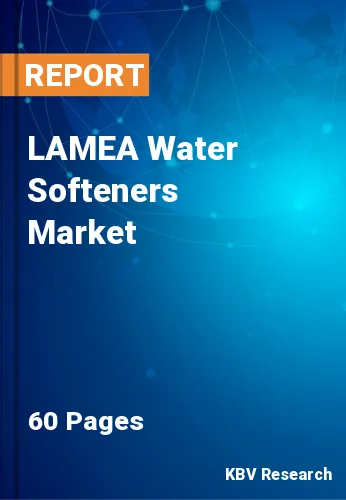The Latin America, Middle East and Africa Water Softeners Market would witness market growth of 7.6% CAGR during the forecast period (2019-2025).
Hard-water minerals tend to cause limescale and frequent harm to pipes. The entire water softening method in the house prevents the minerals which form limescale. This enables the cause of the issue to be efficiently eliminated. This is one of the most efficient ways to reduce the plumbings long-term maintenance costs. A softener helps decrease leakage and extends the life of home appliances by preventing mineral build-up.
Water softening tools are useful if a person has used hard water and cannot follow a proper skin and hair care routine. In order to reduce skin inflammation and dryness, it can be a game-changer. When water is free of undesirable particles of minerals, one can realize that after being washed, clothes and towels become stronger and silkier. Soap scum and stains become a less frequent problem, and the fabrics take longer time to fade or fray. Since soft water is good for detergents and soap, less detergent is needed for washing the same quantity of clothing.
Based on Type, the market is segmented into Salt based and Salt free. Based on End Use, the market is segmented into Residential, Industrial and Commercial. Based on countries, the market is segmented into Brazil, Argentina, UAE, Saudi Arabia, South Africa, Nigeria, and Rest of LAMEA.
The market research report covers the analysis of key stake holders of the market. Key companies profiled in the report include Culligan International Company (Clayton, Dubilier & Rice Ltd.), A. O. Smith Corporation, NuvoH2O LLC, US Water Systems, Inc., Ion Exchange India Limited, Shanghai Canature Environmental Products Co., Ltd., Kent RO Systems Ltd., General Electric (GE), Pentair PLC, and Best Water Technology Group (BWT).
By Type
By End Use
By Country
Companies Profiled
Our team of dedicated experts can provide you with attractive expansion opportunities for your business.

